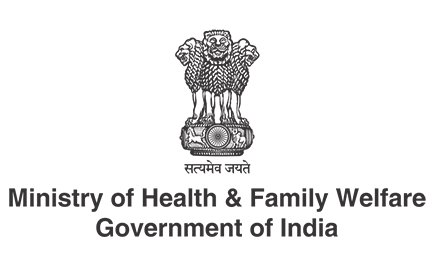
India heightens efforts to protect health policies against tobacco industry vested interests

On 24 June 2019, the Indian Ministry of Health and Family Welfare issued a letter signed by Additional Secretary Sanjeeva Kumar, to all state governments in India, underlining India's obligation under the WHO FCTC Article 5.3 to protect public health policies from the commercial and vested interests of the tobacco industry; hence, any form of collaboration with the Philip Morris International (PMI)-funded Foundation for Smoke-Free World (FSFW) must be avoided in the interest of public health.
Both FSFW and PMI are promoting the use of so-called alternative devices such as e-cigarettes to promote a "smoke-free but not vape-free" world. The letter also referred to the WHO FCTC Secretariat's statement that FSFW is a clear attempt to breach the FCTC by interfering in public policy and is aimed at damaging treaty implementation. Reuters reported earlier that India is considering a ban on e-cigarettes due to the public health risks posed by the difficulties in regulating the product.
The State of Kerala has already taken steps to prevent such attempts to undermine the FCTC when it issued its comprehensive policy entitled National Tobacco Control Programme-Empowered Committee for implementing Article 5.3 Guidelines of WHO FCTC last May 2019.
The Indian MOH letter was released at the height of promotions and invitations around the Smoke-Free Dialogue of the FSFW partner SustainAbility. On 1 July 2019, GGTC issued a statement to denounce the said activity which sought to bring together public health advocates in Bangkok, Thailand. Similar events have been reported in various parts of the world such as Turkey, Tokyo, Pakistan, South Africa, and Brazil. The events in Turkey and Thailand were reportedly cancelled due to the collaborative work among NGO, government, and WHO to reject the events.
For more information, see:
- Ministry of Health & Family Welfare – India (24 June 2019). Letter from National Health Mission to Ministry of Health and Family Welfare, India. On the importance of WHO FCTC. Available at
https://ggtc.world/dmdocuments/Letter%20National%20Health%20Mission%20to%20Ministry%20of%20Health%20and%20Family%20Welfare%20India%2024%2006%202019.pdf - WHO FCTC (2008). Guidelines for implementation of Article 5.3 of the WHO Framework Convention on Tobacco Control on the protection of public health policies with respect to tobacco control from commercial and other vested interests of the tobacco industry. FCTC/COP3(7). Available at
/fctcapps/sites/default/files/kh-media/article53.pdf - WHO FCTC Secretariat (19 September 2017). WHO Framework Convention on Tobacco Control Secretariat’s statement on the launch of the Foundation for a Smoke-Free World. Available at
https://www.who.int/fctc/mediacentre/statement/secretariat-statement-launch-foundation-for-a-smoke-free-world/en/ - Kalra A. India Considers Ban on E-Cigarettes, Sale of Single Smokes. Available at
https://www.scientificamerican.com/article/india-considers-ban-on-e-cigarettes-sale-of-single-smokes/ - Knowledge Hub News (23 May 2019). State of Kerala adopts a comprehensive policy on FCTC Article 5.3. Available at
https://untobaccocontrol.org/kh/article-53/state-kerala-adopts-comprehensive-policy-fctc-article-5-3/ - Government of Kerala (20 May 2019). Health & Family Welfare Department – National Tobacco Control Programme-Empowered Committee for implementing Article 5.3 Guidelines of World Health Organisation (WHO) Framework Convention on Tobacco Control (FCTC)-Constituted orders issued. Available at
https://ggtc.world/dmdocuments/State%20of%20Kerala%20policy%20on%20FCTC%20Article%205.3.pdf - GGTC Public Statement (1 July 2019). Public Statement in relation to the invitation to attend tobacco industry-backed ‘Smoke Free Dialogue’. Available at
https://ggtc.world/2019/07/01/public-statement-in-relation-to-the-invitation-to-attend-tobacco-industry-backed-smoke-free-dialogue/
